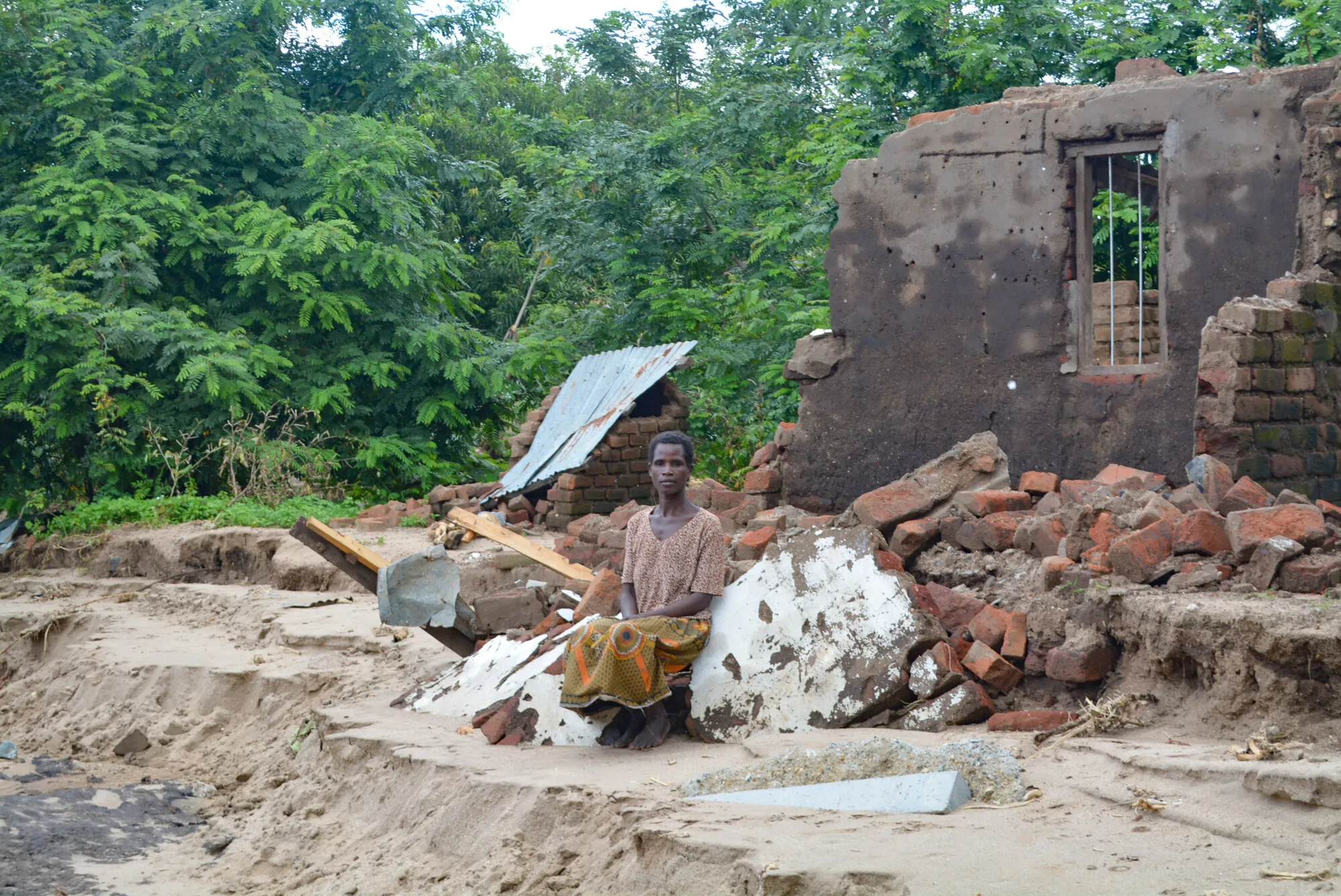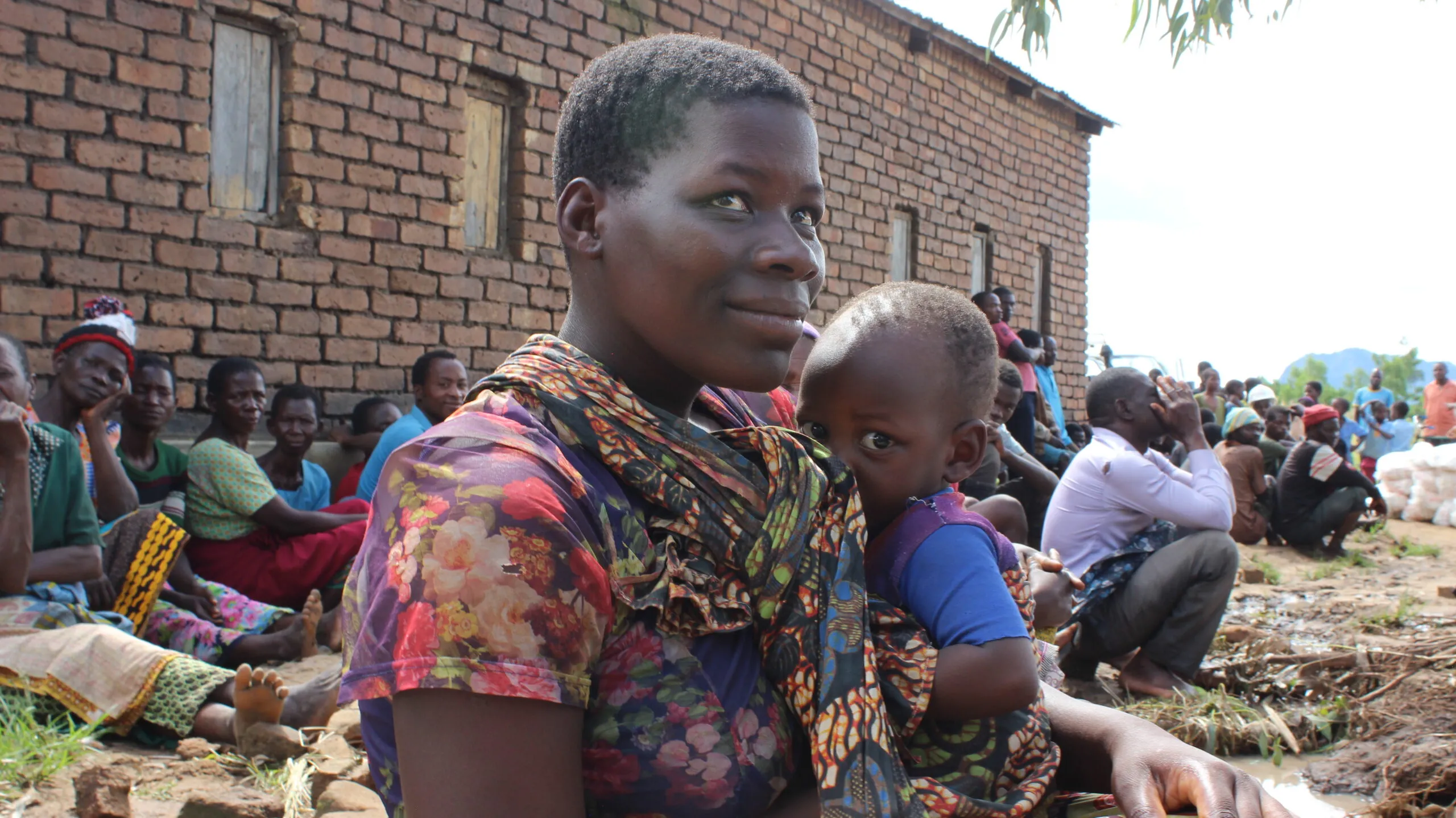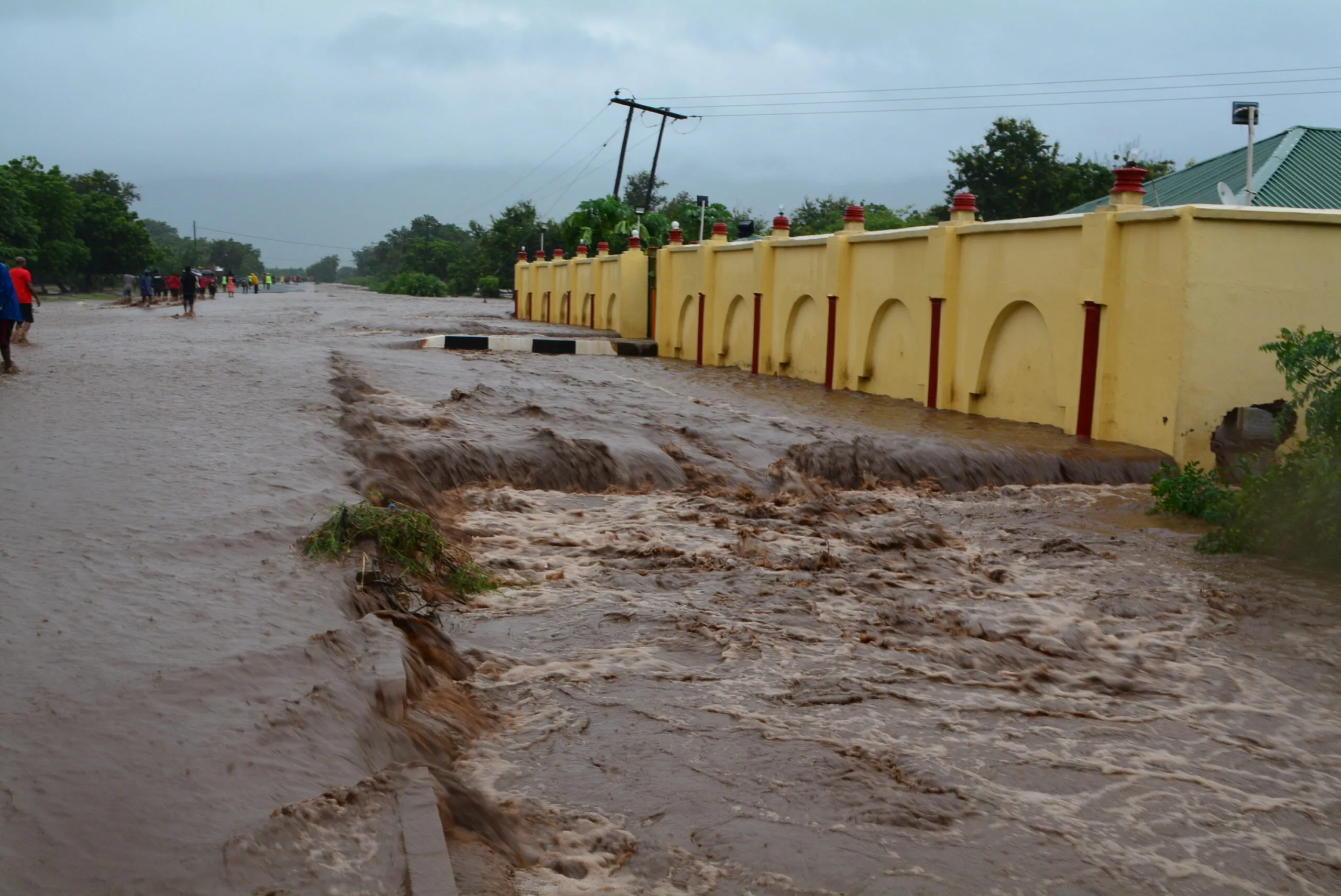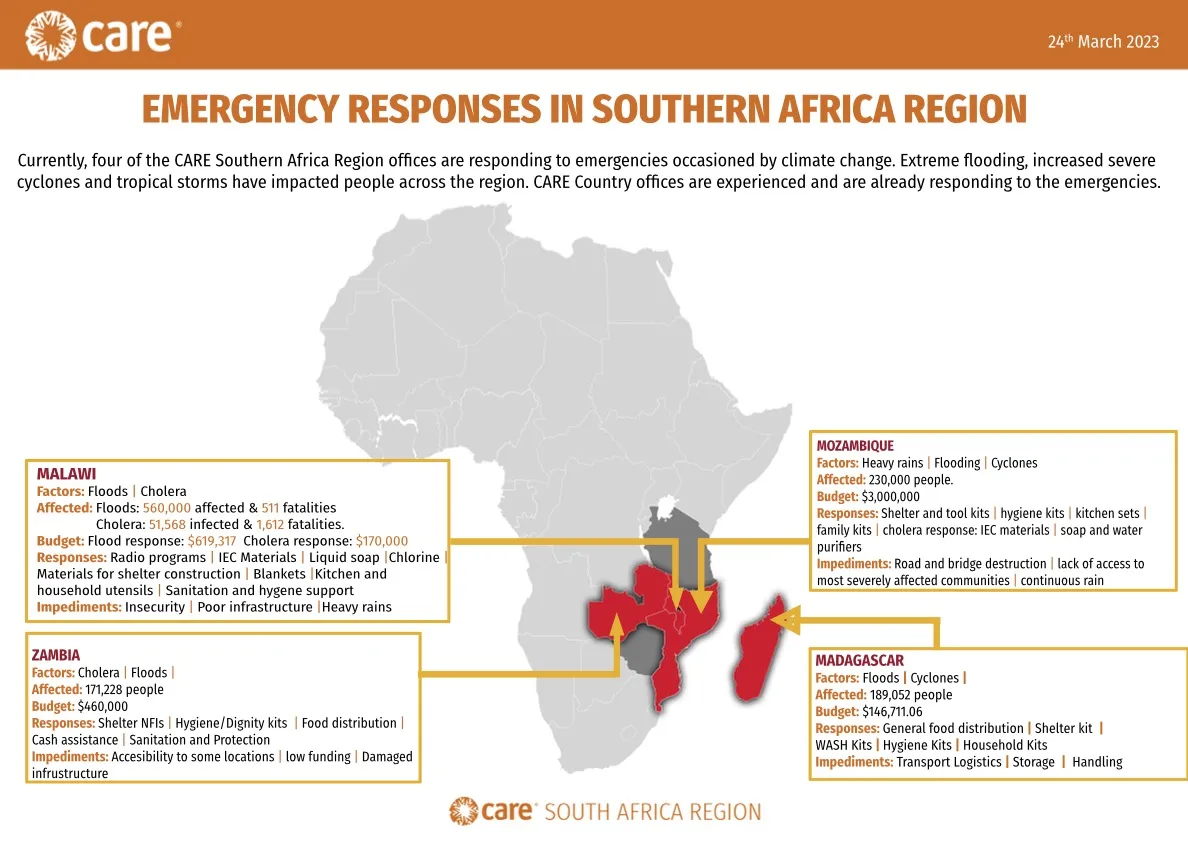CARE: When we talk about distributing ‘aid’ in an emergency, what exactly does that entail?
Laura: CARE Malawi distributed Water, Sanitation, and Hygiene kits [WASH] which is a priority, especially as the country is facing a cholera outbreak and cyclones and floods pose an additional risk for the spread of this disease. There are larger WASH kits delivered to entire communities and smaller kits delivered to households. These kits contain buckets, chlorine, hand soap, laundry soap, toothbrushes, and toothpaste.
We also provide information on sanitation and hygiene to help prevent outbreaks such as cholera. We also provide dignity kits for women and girls, which include underwear, reusable sanitary pads, and chitenge [African cloth]. These are essential for women as many have likely fled their homes with just the clothes on their backs.
CARE: Women and girls are central to CARE’s work. Tell us about the particular considerations regarding women and girls that must be made in emergencies.
Laura: Evidence shows that women and girls face additional challenges in case of emergencies. In the case of a cyclone, displaced women and girls stay in evacuation centers which are common spaces with boys and men who they are not familiar with. This poses an additional risk in terms of sexual violence and abuse.
At a family level, evidence shows that violence against women and girls can spike in stressful situations, such as experiencing a disaster where the family has lost their home and assets. We need to raise awareness on this. Psychosocial support is important for anyone in an emergency situation as this is traumatic, especially for women and girls who face additional risks.







